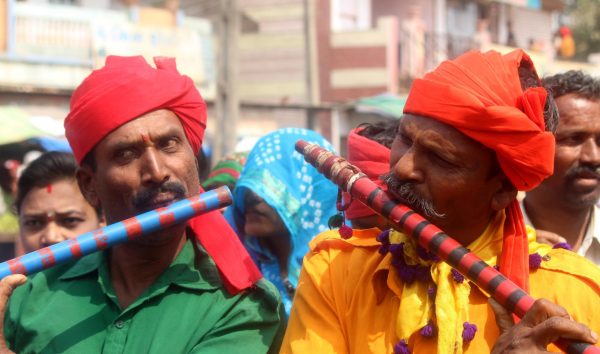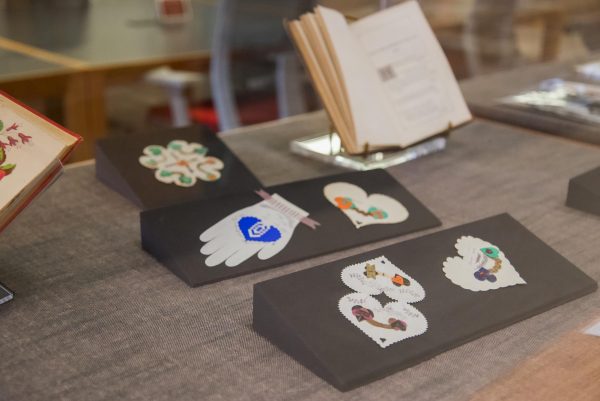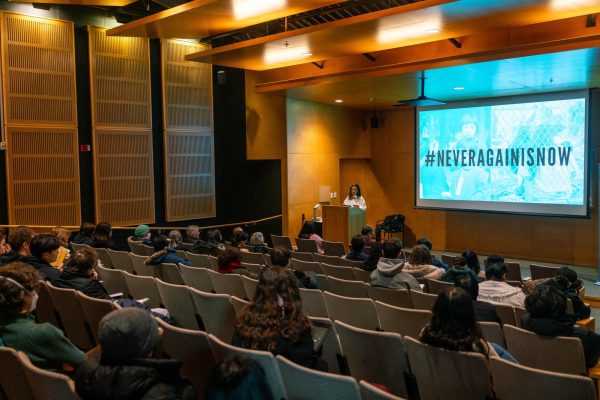Dances for Solidarity Opens Oberlin Chapter
This past Tuesday, the first interest meeting for Oberlin’s chapter of Dances for Solidarity was held on the porch of Wilder Hall. Dances for Solidarity, a New York-based letter writing campaign that works to destigmatize incarcerated individuals through artistic mediums and movement, was founded by choreographer, multimedia artist, and arts educator Sarah Dahnke. Dahnke now serves as the program’s artistic director.
Dahnke’s initial and driving motivation behind the project was to facilitate open and artistically energized conversations between artists and activists in New York and incarcerated people in solitary confinement in Texas and Louisiana. She has been advocating both collaboratively and independently within the criminal justice system for the past six years. Her work is underlined by personal contexts and the de- sire to form relationships with incarcerated individuals.
While Dahnke had not previously worked with system-impacted individuals prior to Dances for Solidarity, she had worked with teenage youth whose families had been affected by incarceration.
“I also have family members who’ve been incarcerated and I was a survivor of a violent crime that brought me into some really unpleasant experiences with the Chicago Police Department,” Dahnke said. “It was really through the development of those in- dividual relationships and our collaborations and sharing ourselves with one another and developing friendships that made me want to stay in this work and find ways that we can expand it and lift up their voices, [and] find ways to humanize folks that have been dehumanized.”
Oberlin is the program’s first chapter outside of New York. This development was spearheaded by College third-year Piper Morrison, who began working with Dances for Solidarity six months ago as a member of the organization’s communications team, and is largely responsible for running their social media accounts and writing a monthly newsletter for the program. Prior to her involvement with Dances for Solidarity, Morrison took time off of school for a fellowship with the Artists at Risk Connection by PEN America, a human rights organization also based in New York. She left the experience with a hunger to continue working and communicating with system-impacted individuals through the arts, particularly seeking out programs with initiatives centered around the medium of dance.
“I was really interested, as I was leaving [Artists at Risk], in connecting with anything that was dance-focused,” Morrison said. “So I got referred by Caits Meissner, who works at PEN America and has been involved in Dances for Solidarity before, to Sarah. And I just reached out to [Sarah] for an informal in- interview. … So we Zoomed and then at the end she was like, ‘By the way, my person who does communications is going to be moving. Would you be interested?’ And I was like, ‘Oh my God, yeah.’ So I work part-time remotely from Oberlin and I have been since then.”
Over the course of Morrison’s work with Dances for Solidarity, she and Dahnke began holding conversations about partnering with schools to further the program’s mission toward community engagement. It quickly occurred to Morrison that Oberlin would be a uniquely apt site for this outreach.
“I was like, ‘Well, I’m here at Oberlin for another year and a half or two,’ and it just seemed like a good opportunity,” Morrison said. “Knowing the student body here, I figured that there would be interest. … I think the goal for this semester is to gather interest, apply for funding, have some base ideas, and figure out how we’re going to make contact with local prisons and incarcerated artists inside. … Another reason why we felt like Oberlin was a good option is because, coming from a local interest level, there’s so many prisons around us that we don’t even know about. I think being on a campus like this, we forget what we’re surrounded by.”
At the Dances for Solidarity interest meeting, College third-year Dorothy Levine suggested the possibility of a partnership with Oberlin Writers in Residence, a program wherein Oberlin students facilitate creative writing workshops in the Lorain County Juvenile Detention Center. Levine was planning on participating in Writers in Residence this semester, but COVID-19 got in the way. Fortunately, Dances for Solidarity presents a more remote and flexible alternative, and Levine is hopeful that the future will allow for in-person collaboration between the two programs.
“[Dances for Solidarity] seems like a really cool way to get involved with work with similar goals,” Levine said. “If there’s going to be a collaboration between the two programs, I think that’d be a really cool way to get youth involved in it, because I also feel passionate about working with kids and adolescents.”
Dances for Solidarity is still in the beginning stages of realizing its goals and structure at Oberlin, but Dahnke looks forward to imminent student engagement and the possibility of a long-term institutional relationship.
“There’s not a lot of sustainability with the way the project currently is structured,” Dahnke said. “I’m really excited that there are excited people at Oberlin who want to be a part of this process. Somebody recently asked me, ‘How do [we] know when the project is over?’ And it’s kind of hard to conceptualize because I think it’s when we don’t have prison. So with that being said, we need more people who are passionate about this work to allow it to sustain, and I think Oberlin is a good place for us to have a presence.”










